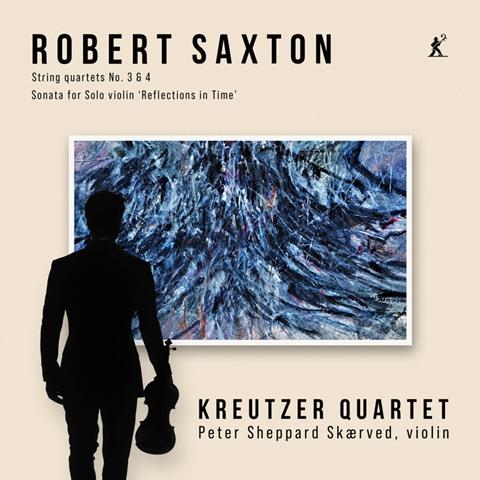Committed performances celebrate a long-time musical friendship

The Strad Issue: June 2025
Description: Committed performances celebrate a long-time musical friendship
Musicians: Peter Sheppard Skærved (violin) Kreutzer Quartet
Works: Saxton: String Quartets: no.3, no.4; Sonata for solo violin ‘Reflections in Time’
Catalogue number: MÉTIER MEX77138
Now 71, Robert Saxton surely counts as one of Britain’s elder statesmen of composition, with a distinguished parallel career in academia. This rewarding disc of some of his recent string chamber works makes a strong case for his deeply lyrical, sometimes Tippettesque music, and also celebrates a friendship of several decades between Saxton and Kreutzer Quartet violinist Peter Sheppard Skærved, which is more than evident in these affectionate, perceptive and unwaveringly committed accounts.
Saxton’s five-movement Third Quartet from 2009 revolves around ideas of time and journeys, and the Kreutzer players bring an almost tactile richness to the dense polyphony of its opening movement, while delivering the second movement’s reflections on winter light with icy clarity, almost detachment. The longer, seven-movement Fourth Quartet from 2018 tackles nothing less than creation, death and rebirth, taking us from the surging energy of its opening ‘Wavebreak’ through a somewhat Barber Adagio-like ‘Nightscape’ to joyful optimism in the closing ‘Daybreak’. In between, Skærved provides a muscular yet nimble account of Saxton’s 2023 solo sonata ‘Reflections in Time’, written for him and inspired by his own landscape drawings.
The disc’s overall impression is of captivating, lovingly crafted music delivered in demonstrative, thoroughly persuasive performances, though there are occasional questions of intonation, balance and ensemble, despite the Kreutzer’s evident enthusiasm. Recorded sound is close and lifelike, though it picks up quite a few extraneous sounds, including a persistent background hiss that’s particularly distracting in quieter movements.
DAVID KETTLE
Watch: Video: Peter Sheppard Skærved celebrates the Newark School of Violin Making in new film
Watch: Peter Sheppard Skærved gives an open-air performance of Viotti’s Ranz des Vaches
Watch: Peter Sheppard Skærved on the ‘Pierre Rode’ Stradivari











































No comments yet